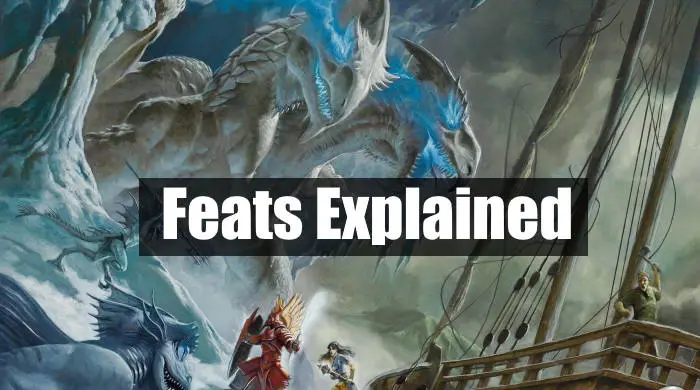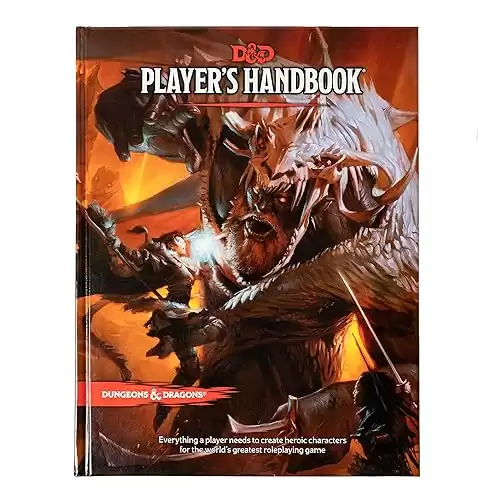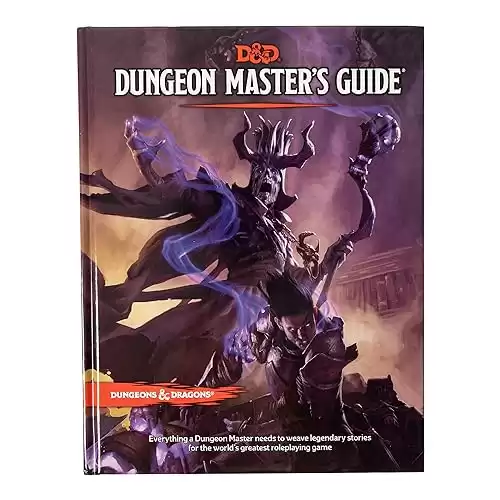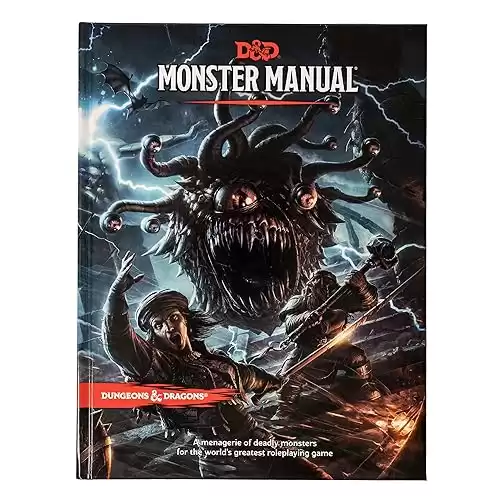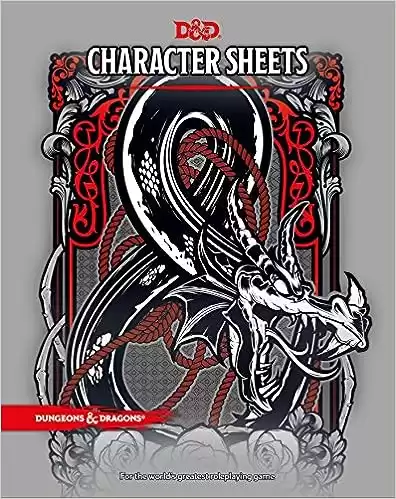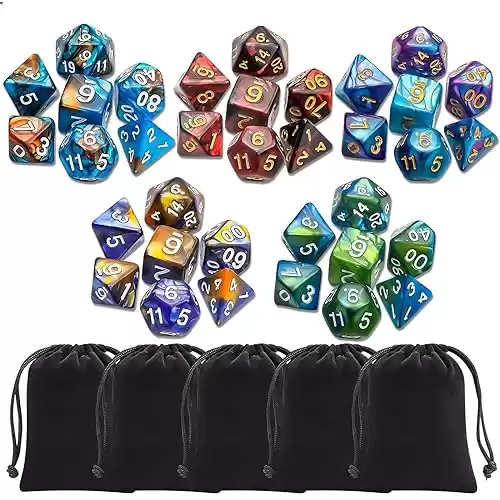DnD is all about playing as your own unique character. There are countless concepts you could have for your character, so race and class options might not be enough to fully bring your vision to life. Luckily, feats give you the ability to specialize your characters even more.
Feats are some of the coolest and most potent customization options in DnD 5e. Each feat gives your character stat bonuses, new spells, and/or extra abilities they otherwise couldn’t gain. They represent the specialized training or unique traits of your character, and you can add one to your character instead of getting an Ability Score Improvement. Feats also vary greatly in power, with the best of the best potentially breaking the game.
If you want to make your character the best version of a specific idea, or if you just want to give yourself a unique power boost, then look no further. This article will tell you everything you need to know to make the most out of feats!
Which DnD Books Have Feats?
Not every book has feats, and not all of them have the same number of feats. If you want to have access to the most feats as possible, then check out the Player’s Handbook, Tasha’s Cauldron of Everything, and Xanathar’s Guide to Everything first. These three books have the largest selection of feats so far, but you can find at least one in each of the following sources:
| Book Name | Abbreviation |
| Eberron: Rising from the Last War | E:RLW |
| Elemental Evil Player’s Companion | EEPC |
| Fizban’s Treasury of Dragons | FTD |
| Player’s Handbook | PHB |
| Strixhaven: A Curriculum of Chaos | SCC |
| Tasha’s Cauldron of Everything | TCE |
| Xanathar’s Guide to Everything | XGE |
What Are Feats?
Feats represent training outside of your class, race, or background, and they give you special bonuses as a result. When you take a feat, you get a combination of stat increases, proficiencies, or other abilities. You can only take each feat once, unless it specifically says you can take it multiple times.
For most feats, your character doesn’t need any particular traits to use them. You don’t have to be a certain level, class, or anything: you can get some of the most powerful feats right away. Others, however, have certain prerequisites you have to meet. You have to meet all of a feat’s prerequisites before you can take it, and you can’t gain any bonuses from it if you ever lose those qualities. Some feats even require you to be a certain race, so you won’t have access to every feat at once.
Lis of Feats
Listed below are all of the standard feats! Keep in mind that not every detail for every feat is listed here. Many of the feats that give you extra spells, for example, also let you cast them once for free per long rest. If one or more of these feats pique your interest, check out the official source for their full rules!
| Feat | Prerequisite(s) | Source | Summary |
| Aberrant Dragonmark | No other dragonmark | E:RLW | +1 Con; you learn one sorcerer cantrip and 1st-level spell; options for Greater Abberant Powers. |
| Actor | n/a | PHB | +1 Cha; advantage on Deception and Performance checks; mimic a person’s speech or a creature’s sounds. |
| Alert | n/a | PHB | +5 to Initiative; you can’t be surprised; unseen creatures don’t gain advantage on attack rolls against you. |
| Artificer Initiate | n/a | TCE | You learn one artificer cantrip and 1st-level spell; proficiency with one type of artisan’s tools. |
| Athlete | n/a | PHB | +1 Str or Dex; standing from prone only takes 5 ft.; climbing doesn’t cost extra movement; you can make running long/high jumps after moving 5 ft. instead of 10 ft. |
| Charger | n/a | PHB | When you use your action to Dash, make one melee weapon attack or shove a creature as a bonus action. |
| Chef | n/a | TCE | +1 Con or Wis; proficiency with cook’s utensils; you can cook food during short/long rests that heal/give temporary hit points |
| Crossbow Expert | n/a | PHB | Ignore the loading property of crossbows you’re proficient with; no disadvantage on ranged attacks if you’re within 5 ft.; extra attack with hand crossbow as a bonus action |
| Crusher | n/a | TCE | +1 Str or Con; you can move creatures after dealing bludgeoning damage; attack rolls against a creature get advantage after you deal bludgeoning damage to hit with a critical hit. |
| Defensive Duelist | Dexterity 13 or higher | PHB | While wielding a finesse weapon, you can add your proficiency bonus to your AC as a reaction to a melee attack. |
| Dual Wielder | n/a | PHB | +1 to AC while wielding a melee weapon in each hand; you can use two-weapon fighting with weapons that aren’t light. |
| Dungeon Delver | n/a | PHB | Advantage on Perception and Investigation checks to detect secret doors; advantage on saving throws to avoid or resist traps; resistance to damage dealt by traps. |
| Durable | n/a | PHB | +1 Con; when you roll a Hit Die to regain hit points, you regain at least twice your Con modifier. |
| Eldritch Adept | Spellcasting or Pact Magic | TCE | You learn one Eldritch Invocation. |
| Elemental Adept | Can cast at least one spell | PHB | Choose acid, cold, fire, lightning, or thunder. Your spells ignore resistance to that damage type and treat any 1s as 2s for damage rolls of that type. |
| Fey Touched | n/a | TCE | +1 Int, Wis, or Cha; you learn Misty Step and a 1st-level Divination or Enchantment spell. |
| Fighting Initiate | Proficiency with a martial weapon | TCE | You learn one Fighting Style option from the fighter class. |
| Gift of the Chromatic Dragon | n/a | FTD | Infuse a weapon with 1d4 acid, cold, fire, lightning, or poison damage for one minute; give yourself resistance to the same damage types as a reaction. |
| Gift of the Gem Dragon | n/a | FTD | +1 Int, Wis, or Cha; when you take damage, deal 2d8 force damage and push the creature up to 10 ft on a failed Str saving throw. |
| Gift of the Metallic Dragon | n/a | FTD | You learn Cure Wounds; give a creature an AC bonus equal to your proficiency bonus as a reaction. |
| Grappler | Strength 13 or higher | PHB | You have advantage on attacks against a creature you’re grappling; you can pin a creature you’re grappling to restrain both of you. |
| Great Weapon Master | n/a | PHB | Make an extra melee attack after scoring a critical hit or killing a creature; take a -5 penalty to hit with a heavy weapon to get +10 damage. |
| Gunner | n/a | TCE | +1 Dex; proficiency with firearms; ignore the loading property of firearms; no disadvantage on ranged attacks if you’re within 5 ft. |
| Healer | n/a | PHB | Give a creature 1 hit point when you stablize them with a medical kit; use a medical kit to heal 1d6 + 4 + the creature’s max number of hit dice. |
| Heavily Armored | Proficiency with medium armor | PHB | +1 Str; proficiency with heavy armor. |
| Heavy Armor Master | Proficiency with heavy armor | PHB | +1 Str; while wearing heavy armor, take 3 less damage from bludgeoning, piercing, and slashing damage. |
| Inspiring Leader | Charisma 13 or higher | PHB | Spend 10 minutes to give six friendly creatures temporary hit points equal to your level + your Cha modifier. |
| Keen Mind | n/a | PHB | +1 Int; you always know which way is north and when the next sunrise or sunset is; you can remember anything you have seen or heard in the past month. |
| Lightly Armored | n/a | PHB | +1 Str or Dex; proficiency with light armor. |
| Linguist | n/a | PHB | +1 Int; you learn three languages; you can create ciphers. |
| Lucky | n/a | PHB | You have 3 luck points to reroll d20 rolls and attack rolls against you. |
| Mage Slayer | n/a | PHB | Use your reaction to make a melee weapon attack against a creature that used a spell within 5 ft. of you; creatures have disadvantage on concentration rolls after being damaged by you; you have advantage on saving throws against spells cast within 5 ft. of you. |
| Magic Initiate | n/a | PHB | You learn two cantrips and a 1st-level spell from the bard, cleric, druid, sorcerer, warlock, or wizard spell list. |
| Martial Adept | n/a | PHB | You learn two maneuvers from the Battle Master fighter. |
| Medium Armor Master | Proficiency with medium armor | PHB | Medium armor doesn’t give you disadvantage on Stealth checks; you can gain up to +3 from your Dex modifier while wearing medium armor. |
| Metamagic Adept | Spellcasting or Pact Magic | TCE | You learn two Metamagic options. |
| Mobile | n/a | PHB | +10 speed; difficult terrain doesn’t cost extra movement when you Dash; you don’t provoke opportunity attacks from creatures you made a melee attack against in the same turn. |
| Moderately Armored | Proficiency with light armor | PHB | +1 Str or Dex; proficiency with medium armor and shields. |
| Mounted Combatant | n/a | PHB | Advantage on melee attacks against unmounted creatures smaller than your mount; redirect attacks targeted at your mount to you; your mount takes less damage from effects that require Dex saving throws. |
| Observant | n/a | PHB | +1 Int or Wis; you can read lips; +5 passive Perception and passive Investigation. |
| Piercer | n/a | TCE | +1 Str or Dex; you can reroll one damage die if the attack deals piercing damage; critical hits that deal piercing damage roll one extra damage die. |
| Poisoner | n/a | TCE | Ignore resistance to poison damage; coat a weapon in poison as a bonus action; proficiency with poisoner’s kit and make doses of poison. |
| Polearm Master | n/a | PHB | When you attack with a glaive, halberd, quarterstaff, or spear, make an attack with the opposite end as a bonus action; you get opportunity attacks when a creature enters the reach of those weapons. |
| Resilient | n/a | PHB | +1 to any ability score; proficiency in the same ability’s saving throws. |
| Ritual Caster | Intelligence or Wisdom 13 or higher | PHB | Cast two 1st-level ritual spells from the bard, cleric, druid, sorcerer, warlock, or wizard spell list; learn more ritual spells from the same list. |
| Savage Attacker | n/a | PHB | Once per turn, reroll the damage dice for a melee weapon attack. |
| Sentinel | n/a | PHB | A creature’s speed becomes 0 after you hit it with an opportunity attack; Disengage doesn’t work against you; as a reaction, make a melee weapon attack against a creature who’s attacking another target. |
| Shadow Touched | n/a | TCE | +1 Int, Wis, or Cha; you learn Invisibility and one 1st-level Illusion or Necromancy spell. |
| Sharpshooter | n/a | PHB | No disadvantage from attacking at long range; your ranged attacks ignore 1/2 and 3/4 cover; take a -5 penalty to hit with a ranged weapon to get +10 damage. |
| Shield Master | n/a | PHB | If you attack; shove a creature with your shield as a bonus action; add your shield’s AC bonus to Dex saving throws against effects that only target you; take no damage if you succeed a Dex saving throw against an effect. |
| Skill Expert | n/a | TCE | +1 to any ability score; proficiency in one skill; double your proficiency bonus for a skill. |
| Skilled | n/a | PHB | Gain proficiency in any three skills and/or tools. |
| Skulker | Dexterity 13 or higher | PHB | You can try to hide when lightly obscured; you don’t reveal your position if you miss a ranged attack while hidden; no disadvantage on Perception checks for seeing in dim light. |
| Slasher | n/a | TCE | +1 Str or Dex; reduce a creature’s speed by 10 ft. when your attack deals slashing damage to it; a creature has disadvantage on attack rolls after you deal slashing damage to it with a critical hit. |
| Spell Sniper | Can cast at least one spell | PHB | Spells that make attack rolls have double range; your ranged spells ignore 1/2 and 3/4 cover; you learn a bard, cleric, druid, sorcerer, warlock, or wizard cantrip that requires an attack roll. |
| Strixhaven Initiate | n/a | SCC | You learn two cantrips and one 1st-level spell based on your college. |
| Strixhaven Mascot | 4th level, Strixhaven Initiate | SCC | You can cast Find Familiar as a ritual; you can make one less attack to let your mascot attack; you can swap places with your mascot within 60 ft. |
| Tavern Brawler | n/a | PHB | +1 Str or Con; proficient with improvised weapons; deal 1d4 damage with unarmed strikes; after hitting a creature with an unarmed strike or improvised weapon, grapple it as a bonus action. |
| Telekinetic | n/a | TCE | +1 Int, Wis, or Cha; you learn Mage Hand and it’s invisible; you can shove a creature within 30 ft. of you as a bonus action. |
| Telepathic | n/a | TCE | +1 Int, Wis, or Cha; you can speak telepathically to creatures you can see within 60 ft.; you learn Detect Thoughts. |
| Tough | n/a | PHB | Your hit point maximum increases by twice your current level; gain another two hit points whenever you gain a level. |
| War Caster | Can cast at least one spell | PHB | Advantage on concentration saving throws; you can cast spells instead of making opportunity attacks. |
| Weapon Master | n/a | PHB | +1 Str or Dex; proficiency with four weapons. |
Racial Feats
The following feats only have one prerequisite: your character’s race. Almost all of these can be found in Xanathar’s Guide to Everything, but there are a couple from other sources.
| Feat | Race(s) | Source | Description |
| Bountiful Luck | Halfling | XGE | When an ally rolls a 1 for an attack roll, ability check, or saving throw, use your reaction to let them reroll. |
| Dragon Fear | Dragonborn | XGE | +1 Str, Con, or Cha; you can roar to frighten creatures within 30 ft. instead of using your Breath Weapon. |
| Dragon Hide | Dragonborn | XGE | +1 Str, Con, or Cha; your AC is 13 + your Dex modifier when you’re wearing no armor; your claws are natural weapons that deal slashing damage equal to 1d4 + your Str modifier. |
| Drow High Magic | Drow Elf | XGE | You can cast Detect Magic at will; you learn Levitate and Dispel Magic. |
| Dwarven Fortitude | Dwarf | XGE | +1 Con; you can spend one Hit Die to heal yourself when you Dodge. |
| Elven Accuracy | Elf or Half-Elf | XGE | +1 Dex, Int, Wis, or Cha; when you have advantage on an attack using Dex, Int, Wis, or Cha, you can reroll one of the dice. |
| Fade Away | Gnome | XGE | +1 Dex or Int; you can use your reaction to become invisible immediately after taking damage. |
| Fey Teleportation | High Elf | XGE | +1 Int or Cha; you know Sylvan; you learn Misty Step. |
| Flames of Phlegethos | Tiefling | XGE | +1 Int or Cha; you may reroll any 1s on a damage roll for spells that deal fire damage; after casting a spell that deals fire damage, wreathe yourself in flames that shed light and deal 1d4 fire damage. |
| Infernal Consititution | Tiefling | XGE | +1 Con; resistance to cold and poison damage; advantage on saving throws against being poisoned. |
| Orcish Fury | Half-Orc | XGE | +1 Str or Con; you can roll one of a weapon’s damage dice an additional time and add it to an attack’s damage; use your reaction to make a weapon attack immediately after you use Relentless Endurance. |
| Prodigy | Half-Elf, Half-Orc, or Human | XGE | Proficiency in one skill, one tool, and learn one language; double your proficiency bonus for a skill. |
| Revenant Blade | Elf | E:RLW | +1 Str or Dex; +1 AC while holding a double-bladed scimitar with two hands; double-bladed scimitars have finesse when you wield them. |
| Second Chance | Halfling | XGE | +1 Dex, Con, or Cha; when a creature you see hits you with an attack roll, use your reaction to make it reroll. |
| Squat Nimbleness | Dwarf or small races | XGE | +1 Str or Dex; +5 walking speed; proficiency in Acrobatics or Athletics; you have advantage on Athletics and Acrobatics checks to escape being grappled. |
| Svirfneblin Magic | Deep Gnome | EEPC | You can cast Nondetection on yourself at will; you can cast Blindness/Deafness, Blur, and Disguise Self once per long rest. |
| Wood Elf Magic | Wood Elf | XGE | You learn one druid cantrip, Longstrider, and Pass Without Trace. |
How Do You Get Feats in DnD?
Now that you’ve picked out some interesting feats, how exactly do you add them to yourcharacter? There are only two ways to take feats, and both are pretty simple! Just remember: feats are an optional rule. You should always talk to your DM before taking any feats. They get the final say about allowing feats in their game, but you can still try to make the case for your feat if they say no initially.
The first way to get feats happens as you level up. Whenever you would get an Ability Score Improvement, you can choose to take a feat instead. This means that some classes, like Fighters, get the chance to have more feats than others.
The second way is by choosing to play as a Variant Human. Instead of increasing all of your ability scores by 1, you just increase two scores by 1, get a skill proficiency, and gain any feat. This is the earliest way to get a feat, and it’s one of the strongest races as a result.
Why Should I Take Feats?
Maybe you’re still on the fence about taking feats. After all, giving up an Ability Score Improvement can be a big loss. So what makes feats worth it?
The first reason is that feats can help you make a specific character concept come to life. Just about any feat could help show off your character’s specialties and talents if you play into it. In season 2 of Critical Role, the Keen Mind feat really helped characterize Caleb Widogast as a genius.
Feats can also help reinforce elements of your campaign’s story. If your character fulfills a quest for a powerful Archfey, maybe they could gain the Fey Touched feat as a reward. They could also train with an important NPC to improve their combat skills, gaining any number of martial feats. Your character’s progression in the story can be made even more potent by giving them a corresponding feat.
Lastly, there are plenty of feats that offer a ton of power. If you like playing a very capable character, then feats can take your skills to the next level. They let you do more damage, do well on more skill checks, and reach new levels of heroism.
What is the Best Feat for Each DnD Class?
Of course, some feats are stronger than others, and you’ll want different feats depending on your playstyle. Each class has feats that suit them best, and my picks for each class’s top feat are listed below.
If my pick doesn’t match your character concept, that’s ok! DnD is full of exceptions, and you should feel free to take whatever makes the most sense for your build. I picked feats that would work well with most characters of each class, but that doesn’t mean each feat is perfect for your character. Only you can decide that!
Artificer
Overall, Artificers have a ton of variety. They can fight in melee or from range, and they have lots of support and utility options. If you’re looking for even more choices to customize your artificer, consider getting Magic Initiate.
Magic Initiate is a simple but effective feat: you get two cantrips and one 1st-level spell of your choice, which you get to cast once for free every day. There are plenty of great utility spells that artificers don’t have access to, such as Charm Person, Find Familiar, and Protection from Good and Evil. There are also plenty of excellent cantrips that can expand your options in and out of combat.
Ultimately, Magic Initiate is a great way to add more choices for a flexible class like the artificer.
Barbarian
No matter what backstory or subclass you choose for your barbarian, this class excels at combat. They’re built for tanking damage and swinging big, so what better feat for them than Great Weapon Master?
Adding 10 damage to all of your melee attacks is ridiculous, and barbarians can get around the -5 penalty to hit easier than most. If you use Reckless Swing, you can get advantage on all of your attack rolls, making it more likely that you can push through that -5. Getting extra attacks for defeating your enemies or rolling a critical hit is another huge boon. This feat can turn you into an absolute powerhouse, dealing massive amounts of damage every single turn.
Bard
Bards often shine in the social aspects of DnD, and Actor lets you take advantage of that. Not only is the flavor perfect for a class built around theatrics, but it’s also just useful for any sort of intrigue.
Actor lets you accurately imitate the speech and sounds of others, and it works perfectly with illusion magic like Disguise Self. With this one spell and this one feat, you can convincingly imitate just about anyone. Creative players can run wild with the possibilities: you could infiltrate a royal ball by pretending to be a noble, break someone out of prison by imitating the warden, or pose as a high-ranking minion for your campaign’s latest villain.
Players who love social interaction and intrigue gravitate towards bards, and this feat gives them even more opportunities to rely on their wit.
Cleric
Most players associate clerics with the healers of the party. There’s plenty of variety between subclasses, but it’s true that clerics are one of DnD’s best support classes. Whether you want to fully lean into being the healer or you just want to dabble in it, Gift of the Metallic Dragon will help you keep your party safe.
This feat is perfect for a support role: you get to learn Cure Wounds and cast it for free once per day, and you can use your reaction to boost your allies’ AC. Always knowing Cure Wounds can give you more flexibility when preparing spells.
You can focus on utility or combat spells while still acting as the healer when you need to. Increasing someone’s AC also lets you take on a supportive role when it’s not your turn, making it less likely you have to spend your turn healing. And if you do want to go all in on healing, then Gift of the Metallic Dragon gives you even more tools to do so.
Druid
Observant may not be flashy, but it’s an excellent choice for just about any druid. All druids rely on having a high Wisdom, and most parties with a druid rely on them for Perception, Survival, and the like. Not only can Observant give you a bonus to Wisdom, but it also gives you +5 passive Perception and Investigation. If you want to be the party’s eyes and ears, then Observant will help you pick up on all the little details.
Reading people’s lips can also be extremely useful. Especially for campaigns built around intrigue, watching a conversation from a distance can be crucial to solving a mystery or staying one step ahead of your foes.
Fighter
Fighters are known for, well, fighting. They can take control of the battlefield, and Sentinel is an excellent tool for shutting down your opponents. Extra opportunity attacks let fighters do what they do best: deal damage. Beyond that, though, reducing a creature’s movement to 0 can be devastating. If you can keep the bad guys in melee with you, you’re protecting your back line and setting yourself up to do tons of damage.
Sentinel is one the best feats in the game, and it’s a perfect fit for the figher.
Monk
Monks have a unique ability to move through a battle. They get more movement speed and maneuvering options than other classes, so why not give them Mobile and push that to its limit?
A Mobile monk gets an extra 20 ft. of movement at 4th-level, and reaches 40 extra ft. at 18th-level. That alone gives you a huge advantage for closing gaps, running away, or repositioning yourself in a fight. Combined with the ability to avoid opportunity attacks, Mobile monks have an unparalleled ability to dart in and out of combat. You’ll always be able to put yourself in the best position, staying away from opponents on their turn but getting up close and personal on yours.
Paladin
Like clerics, paladins evoke a specific image in players’ minds. The classic paladin is a righteous warrior who fights with conviction and honor. Mechanically, paladins reflect this by holding their own in battle while supporting their allies when they need to. Out of all the classes in DnD, the paladin is the best fit for the Inspiring Leader feat.
RELATED: Dungeons and Dragons Alignments Explained
Inspiring Leader relies on a high Charisma, which paladins already have for spellcasting. Giving yourself and your allies temporary hit points also fits well with paladins since they have plenty of options for support and healing. This feat really leans into the flavor and mechanics of paladins, and it’ll always be useful to get extra hit points before a fight.
Ranger
There are multiple ways to build rangers in 5e, but my personal favorite is as an archer. All rangers have a longbow in their starting equipment, so they at least have the option of fighting from a distance. If you want to be the deadliest archer you can be, then Sharpshooter is must-have feat.
Sharpshooter is similar to Great Weapon Fighting: both let you take a -5 penalty to hit in order to deal an extra 10 damage. The extra damage alone makes this feat worth it, especially since the Archery Fighting Style gives you +2 to hit with ranged weapon attacks. That -5 penalty doesn’t hurt too badly if you’ve built around it.
Still, don’t overlook this feat’s other abilities: ignoring 1/2 and 3/4 cover, as well as firing from long range without disadvantage, let you stay at a safe distance from your enemies. You can deal massive amounts of damage from the outskirts while your allies keep your opponents busy.
Rogue
Rogues are known for being the stealthiest members of the party. Whether they’re staying out of sight during combat or infiltrating the enemy’s lair, rogues are at their best when they’re hidden. Not every situation has the perfect spot to hide, but Skulker lets you get the most out of just a bit of cover.
This feat lets you hide when you’re only lightly obscured, which greatly expands your options for cover. It also makes acting from your hiding spot less risky because you can’t be discovered just for missing a ranged attack. Skulker gives you even more freedom to operate from the shadows, which makes life easier for every rogue.
Sorcerer
Sorcerers are some of the best blasters in DnD, so feats that make their spells even more potent are a high priority. There aren’t too many feats in 5e for augmenting your spells, but Elemental Adept lets you take your damage to the next level.
The biggest drawback to this feat is that you have to pick just one damage type, but that’s fairly easy to work around. Some subclasses, like Draconic Bloodline or Storm Sorcery, want you to do that anyway. You also don’t get that many spells as a sorcerer, so you don’t need to find tons of spells with the same damage type. Even if you do want to use a spell with a different type, Transmuted Spell can let you change it to whatever you picked with this feat.
The payoff for focusing on one damage type (or a couple if you take this feat more than once!) is more consistent damage. Any 1s that you roll on damage are treated as 2s, and you ignore a creature’s resistance to your chosen type. Elemental Adept lets you pump out consistent damage in almost every situation, which is great for combat-focused sorcerers.
Warlock
The most powerful tool in a Warlock’s arsenal is Eldritch Blast. You don’t have to take it, but it’s your most consistent source of damage, and your other class features let you add upgrades to it. If you plan on maximizing this cantrip, Spell Sniper is a fantastic option.
Spell Sniper lets you ignore both 1/2 and 3/4 cover, as well as double the range for any spells that require an attack roll. For any warlock who wants to invest in Eldritch Blast, both of these buffs let you get even more out of your best spell.
Wizard
Wizards typically struggle in melee combat. They have low hit points, no armor, and they usually aren’t that effective with melee weapons. If an enemy gets within 5 ft. of your party’s wizard, they’re in serious danger. War Caster helps prevent this, though, as well as provides excellent utility for any wizard in combat.
First, making your concentration checks with advantage is always fantastic. Wizards have many excellent spells that require concentration, and they’ll be using one of these spells in almost every fight. Casting spells instead of making opportunity attacks is also useful, since wizards usually have pitiful weapon skills. Most wizards won’t be in melee often, but this is especially strong for Bladesingers.
Which Feat Should I Take First?
With so many feats to choose between, it can be overwhelming trying to pick just one. My biggest piece of advice is to think about what you want to get out of feats. Do you want to be the best possible fighter? Do you want to give yourself new ways to play the game? Is there something that your character is lackng? How you want to play your character will tell you a lot about what feats you should take.
If you’re just looking for a strong feat that will work with any character, then I recommend taking Lucky. Rerolling just about any d20 is a huge boon, even if you can only do it three times a day. No matter what kind of character you’re playing or what level you are, Lucky will be a big upgrade.
When Shouldn’t I Take Feats?
Of course, you shouldn’t always take feats. Just because there are plenty of great feats out there doesn’t mean it’s always right to take them.
The biggest reason not to take a feat is that your ability scores are falling behind. Since you have to take feats instead of improving your scores, your stats can take a toll if you go too long without improving them. Your ability scores affect almost every aspect of the game, and it’s important to improve them throughout a campaign.
Another big reason not to take a feat is if none of them really speak to you. If you’ve already taken the feats that make sense for your character, there’s no reason to force yourself to take more. Even if they’re just generically strong, not all players want to take feats for the sake of it.
Which Feats Should I Avoid?
Some feats are more situational than others, but almost all feats still have their uses. A handful, though, are either too niche or too weak to justify taking them.
Dungeon Delver is the best of the worst, but it’s still too niche for me to recommend. Your campaign has to heavily feature dungeons to think about taking this, and even then, I’m not sure it’s good enough.
It helps you get around traps and find secret doors, but decent skill checks are usually all you need. 5e has also moved away from having lots of dungeons and traps, so there will likely be fewer adventures that make use of this feat.
Next, the Lightly Armored, Moderately Armored, and Heavily Armored feats are usually unnecessary. All of these at least give you ability score increases, but most characters don’t need new armor proficiencies. Each class already gives you armor that makes sense for the class.
Rogues might only get light armor, for instance, but their high Dexterity helps them have a reasonable AC. Even spellcasters have access to Mage Armor, Shield, and other tools to help boost their AC. These aren’t the worst options if you really need more defense, though.
Lastly, Weapon Master is the worst feat in DnD 5e. Each class already gives you weapon proficiencies that work well with your role in combat. Getting four proficiencies also seems excessive; you’ll likely only be using one melee and one ranged weapon. If you really want extra weapons, there are races that give you great options, like Elves or Dwarves, without sacrificing your ability scores.
End of Session
Feats are some of the coolest options for customization in DnD. Whether you want to tell a story, show off your skills, or just have some fun, I hope this article has inspired your next awesome DnD character!
